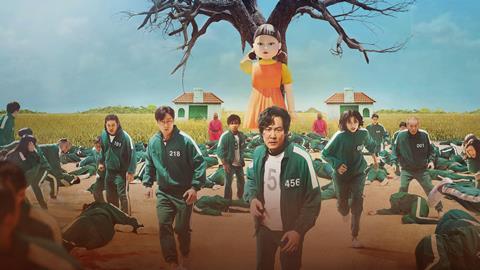Live sports, M&A, the pros and cons of AI, and Brazilian tax law among key topics
Netflix’s $619m (£464.5m) tax bill in Brazil meant the global streamer missed its Q3 earnings targets, sending shares down more than 7% – but revenues were up 17% to $11.5bn (£8.6bn), in line with expectations.
Beyond those headline numbers, here’s what else was revealed during the earnings call.
Quite a bit about the Brazilian tax system
As chief financial officer Spence Neumann put it, the issue behind that enormous tax bill is “a bit complicated”.

Essentially, it’s a 10% gross tax on certain payments made by Brazilian entities to companies outside of the country. “In our case, Netflix Brazil pays Netflix US for services that enable Netflix Brazil to offer subscriptions to our Brazilian customers,” Neumann explained.
In 2022, a lower court concluded that Netflix wasn’t subject to the tax, but in August this year, the Brazilian Supreme Court reached a decision against an unrelated company, ruling that the tax applies to a wider range of transactions than previously thought including service payments that don’t involve the transfer of technology. And that brought Netflix into its scope.
“Given that court’s ruling… we now deem the loss to be probable, and that’s why we recorded the expense in Q3,” Neumann said. The cost covers the period from 2022 up until the most recent quarter, explaining the hefty price tag. It should be a one and done, though, said Neumann, adding that he doesn’t expect the matter “to have a have a material impact on our results going forward.”
Netflix is open to acquisitions but not in a rush
In the wake of Warner Bros Discovery chief executive David Zaslav confirming his US studio is exploring a potential sale, the Netflix hierarchy were inevitably bombarded by a number of questions related to their own M&A activity.
“It’s true that historically we’ve been more builders than buyers, and we think we have plenty of runway for growth without fundamentally changing that playbook,” said co-chief executive Ted Sarandos. “Nothing is a must-have for us to meet the goals that we have for the business.”

That said, he didn’t rule out the possibility of “selective M&A”.
But anyone wondering if a potential slice of WBD might be tempting for Netflix got a swift answer.
“We’ve been very clear in the past that we have no interest in owning legacy media networks, so there is no change there,” Sarandos said. “But in general, we believe that we can and will be choosy. We have a great business. We’re predominantly focused on growing organically, investing aggressively and responsibly into the growth, and returning access cash flow to shareholders.”
Co-chief executive Greg Peters reflected that none of the industry consolidation activity of recent years (he pointed to Disney and Fox, Amazon and MGM, Time Warner and ATT and Discovery and Warner Bros) had resulted in a fundamental shift in the competitive landscape, or the challenges companies face.
The range of activities that an individual media company needs to deliver well has never been wider he said, from producing film and TV shows across multiple genres, languages and countries to incorporating the latest technology, building product experiences, customer acquisition and retention and optimising global payments.
But, he said, developing those capabilities could only happen “in the trenches, day to day – you don’t get there simply by buying another company that is also still developing those same capabilities”.
Live sports are ‘differentially valuable’
The boxing match between Canelo Alvarez and Terence Crawford, streamed live on Netflix on 13 September, was the most viewed men’s championship fight of the century, the streamer said, with more than 41 million live plus one viewers, making it a top 10 programme in 91 countries.

“We believe these big events that attract mass audiences are differentially valuable for our members – it’s a kind of urgent viewing that our members love and value,” Sarandos said.
Despite representing only a small portion of content spend and of the 200 billion hours viewed annually, live events “typically have outsized positives for conversion and acquisition, and we strongly suspect retention,” he added.
Sarandos said that the company is seeking to grow its live capabilities both in the US and internationally.
More interactive features in the not-too-distant future
Earlier this month Netflix launched a series of party games which users could play on their TVs through the streaming platform.

But, Peters said, the addition of games to the service was only the tip of the iceberg.
“We’ve mostly talked so far about our work in this space as ‘games’, because that’s an easy shorthand, but we see this initiative as more about interactivity broadly,” he said. “How does interactivity become complementary to linear storytelling? How is it able to unlock whole new entertainment experiences?”
He pointed to the example of live voting, which is currently being tested on Dinner Time Live With David Chang, and will be rolled out more broadly in the new year. The company expects to provide other interactive features in the future.
When it comes to gaming itself, he said, the company will be focussing on “offering more high-quality games in a few key genres and targeting the right cohort of users”. He gave the example of immersive narrative games based on Netflix-owned IP such as Squid Game and Black Mirror.
These games may well be controlled through users’ phones in the near future, he suggested.
“We’re just starting to scratch the surface today,” he said. “We think there’s much more we can ultimately do in this space… Looking ahead, we’re going to ramp our investment in this area judiciously based on demonstrating that we’re ramping returns to the business, but we’re extremely excited about the progress we’ve got ahead of us.”
Netflix ‘not worried’ about generative AI
Asked about the threat posed by new and powerful AI video generation tools such as Sora Two, Sarandos seemed unphased, saying that in the short term, the technology is more likely to represent competition for user-generated content than for streaming platforms.
“For what we do, it takes a great artist to make something great,” he said. “Writing and making shows and films well is a rare commodity, and it’s only done successfully by very few people.
“AI can give creatives better tools to enhance their overall TV movie experience for our members, but it doesn’t automatically make you a great storyteller if you’re not.”
He added: “We’re not worried about AI replacing creativity, but we’re very excited about AI creating tools to help creativity.”
Sarandos added that the company isn’t “chasing novelty for novelty’s sake” on AI and is instead investing in what will deliver value for creators and members alike.









No comments yet